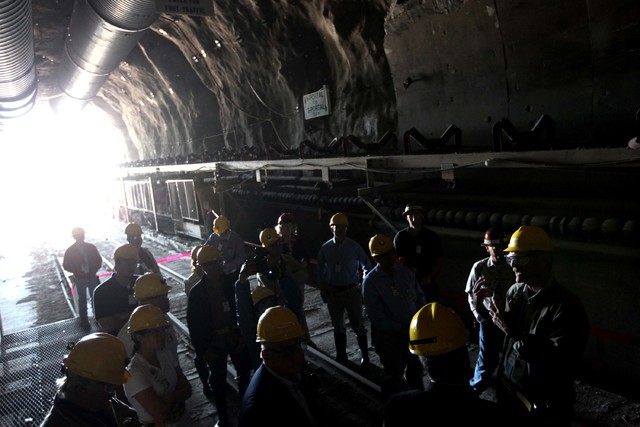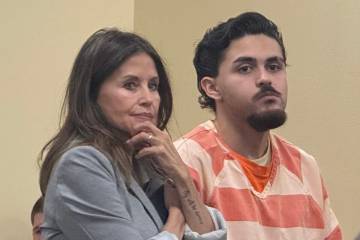DOE to Congress: No new use planned for Yucca
WASHINGTON — The Department of Energy has moved to end speculation over the future of Yucca Mountain, telling Congress there are no plans in the works to put the once-proposed radioactive waste site to new use.
A department executive said DOE has received no proposal from the Defense Threat Reduction Agency, or DTRA, which sent a half dozen officials to the Nevada site last month. The tour went inside the 25-foot-wide tunnel that was carved into the mountain for nuclear waste studies.
Further, said John Kotek, principal deputy assistant secretary for nuclear energy, “we have been informed that DTRA does not intend to make such a proposal.”
Kotek relayed the message in a letter to the leaders of the House Energy and Commerce Committee.
The letter dated March 4 was made available by the committee on Wednesday.
Committee Chairman Fred Upton, R-Mich., had asked Energy Secretary Ernest Moniz for an explanation of reports that the department and the defense agency had discussions involving use of the Yucca site, about 100 miles northwest of Las Vegas.
A report in an energy trade publication based on an unnamed source said the defense agency was searching for suitable tunnels to perform “catastrophe scenarios” that could include studying the effects of an underground train derailment.
The agency is charged with developing strategy and tactics for the government to counter threats from biological, nuclear and chemical weapons, and high explosives.
Upton, joined by subcommittee Chairmen Reps. John Shimkus, R-Ill., and Tim Murphy, R-Pa., told Moniz using Yucca Mountain for anything other than nuclear waste could violate federal law.
The site is still covered by law even though the Obama administration terminated the nuclear waste program in 2010. Republicans and some Democrats in Congress are trying to resurrect it.
A Defense Threat Reduction Agency spokesman confirmed that agency professionals were on the Yucca site on Feb. 17, but described the visit as a one-time deal and one of the agency’s periodic visits to underground facilities to deepen understanding of their characteristics.
Further details of what was being examined would likely be classified, the agency said. Neither the agency nor the Department of Energy has disclosed how much it cost to open the mothballed site to visitors, and who paid the bill.
“DTRA has not and will not be doing any testing at the Yucca Mountain site,” spokesman Daniel Gaffney said last week in answer to queries.
In his letter, Kotek said, “DTRA is better suited to discuss the plans of that agency but I can tell you that DOE has not received a proposal from DTRA to use the Yucca Mountain site for any purpose.”
Shimkus, who has said he plans to visit the Yucca site later this year, “is satisfied with the response and will remain watchful to ensure that the facility is only used for its lawful and intended purpose,” spokesman Jordan Haverly said.
















